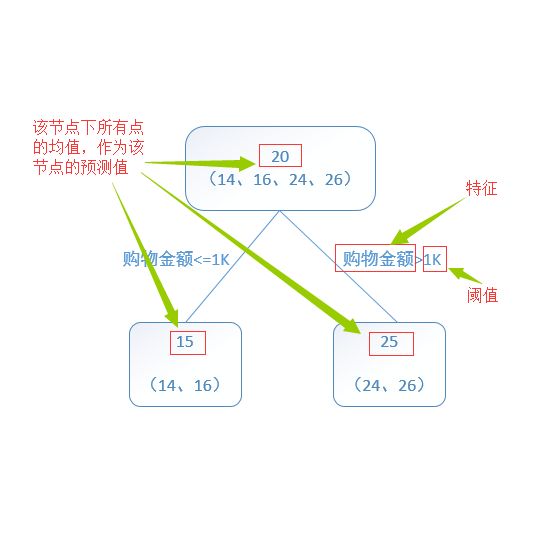Privacy-preserving learning of gradient boosting decision trees (GBDT) has the potential for strong utility-privacy tradeoffs for tabular data, such as census data or medical meta data: classical GBDT learners can extract non-linear patterns from small sized datasets. The state-of-the-art notion for provable privacy-properties is differential privacy, which requires that the impact of single data points is limited and deniable. We introduce a novel differentially private GBDT learner and utilize four main techniques to improve the utility-privacy tradeoff. (1) We use an improved noise scaling approach with tighter accounting of privacy leakage of a decision tree leaf compared to prior work, resulting in noise that in expectation scales with $O(1/n)$, for $n$ data points. (2) We integrate individual R\'enyi filters to our method to learn from data points that have been underutilized during an iterative training process, which -- potentially of independent interest -- results in a natural yet effective insight to learning streams of non-i.i.d. data. (3) We incorporate the concept of random decision tree splits to concentrate privacy budget on learning leaves. (4) We deploy subsampling for privacy amplification. Our evaluation shows for the Abalone dataset ($<4k$ training data points) a $R^2$-score of $0.39$ for $\varepsilon=0.15$, which the closest prior work only achieved for $\varepsilon=10.0$. On the Adult dataset ($50k$ training data points) we achieve test error of $18.7\,\%$ for $\varepsilon=0.07$ which the closest prior work only achieved for $\varepsilon=1.0$. For the Abalone dataset for $\varepsilon=0.54$ we achieve $R^2$-score of $0.47$ which is very close to the $R^2$-score of $0.54$ for the nonprivate version of GBDT. For the Adult dataset for $\varepsilon=0.54$ we achieve test error $17.1\,\%$ which is very close to the test error $13.7\,\%$ of the nonprivate version of GBDT.
翻译:暂无翻译



